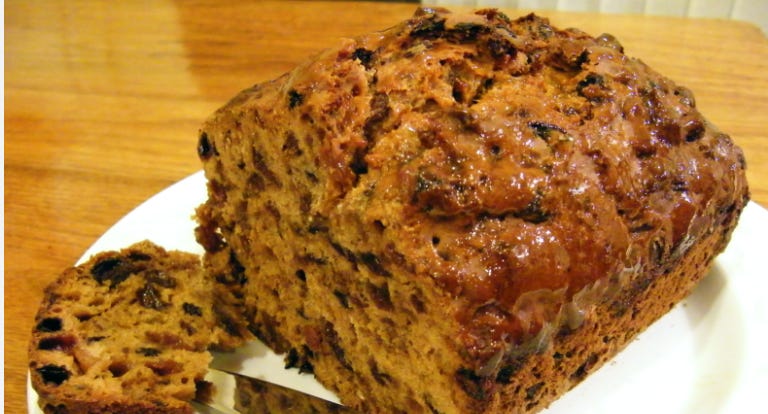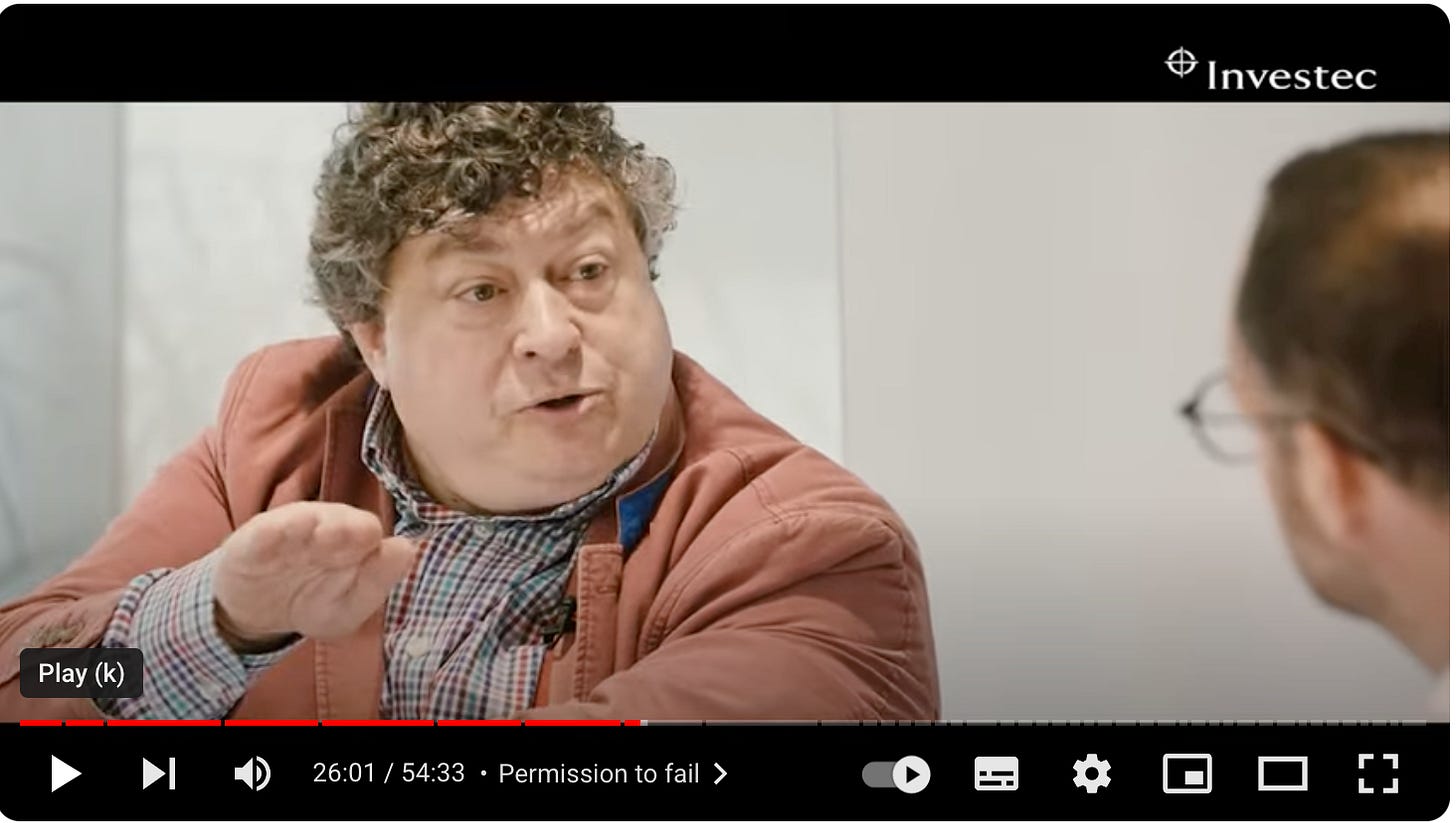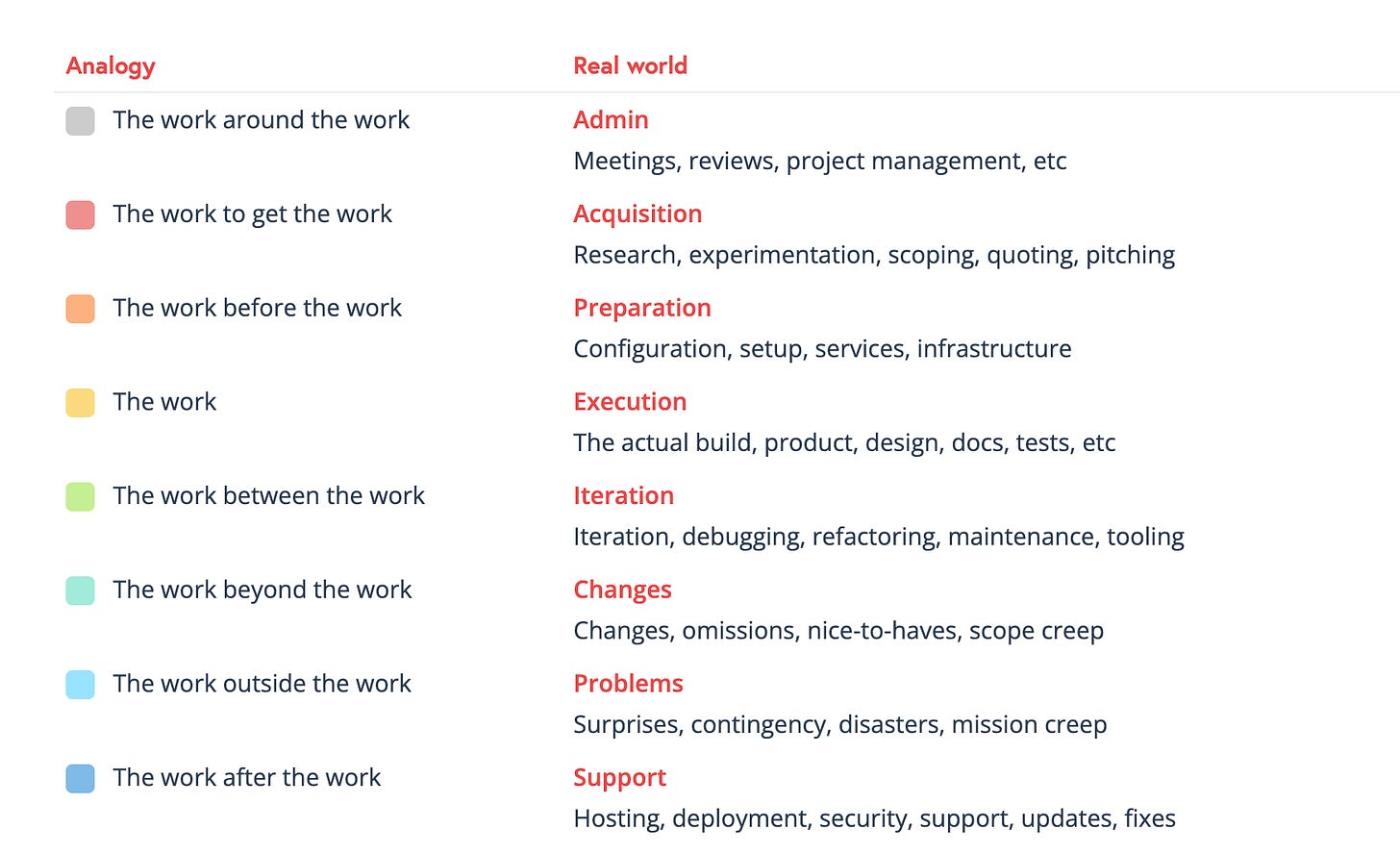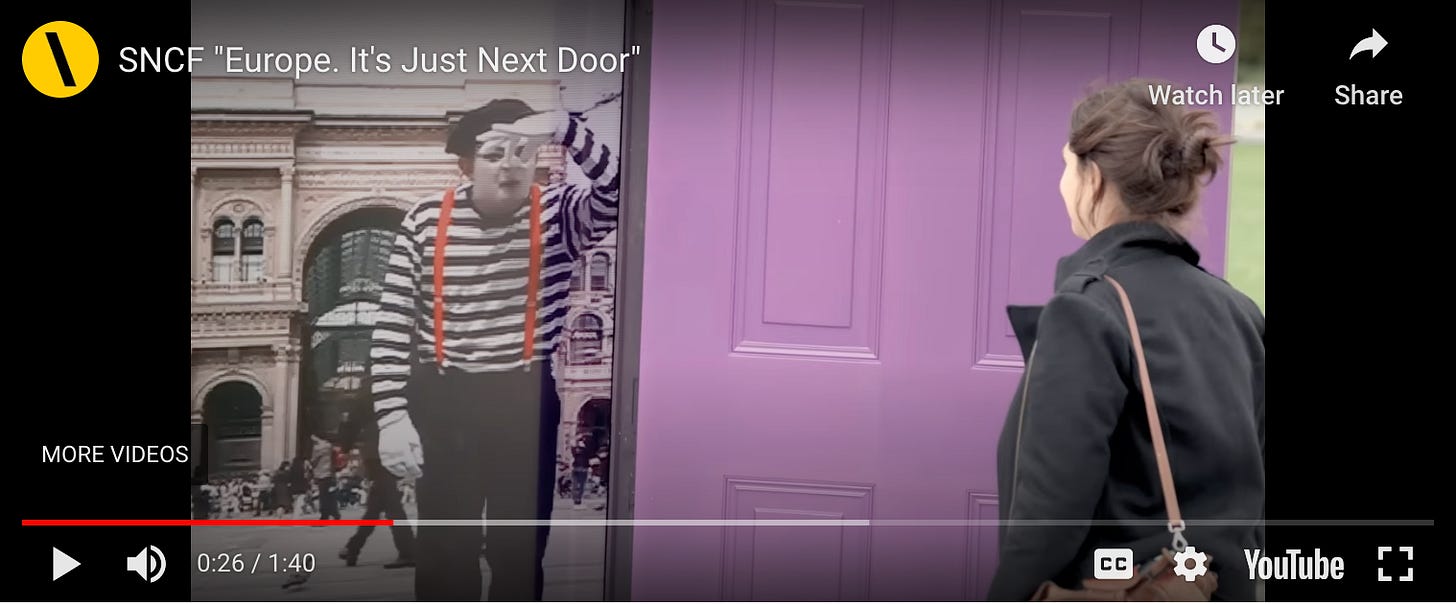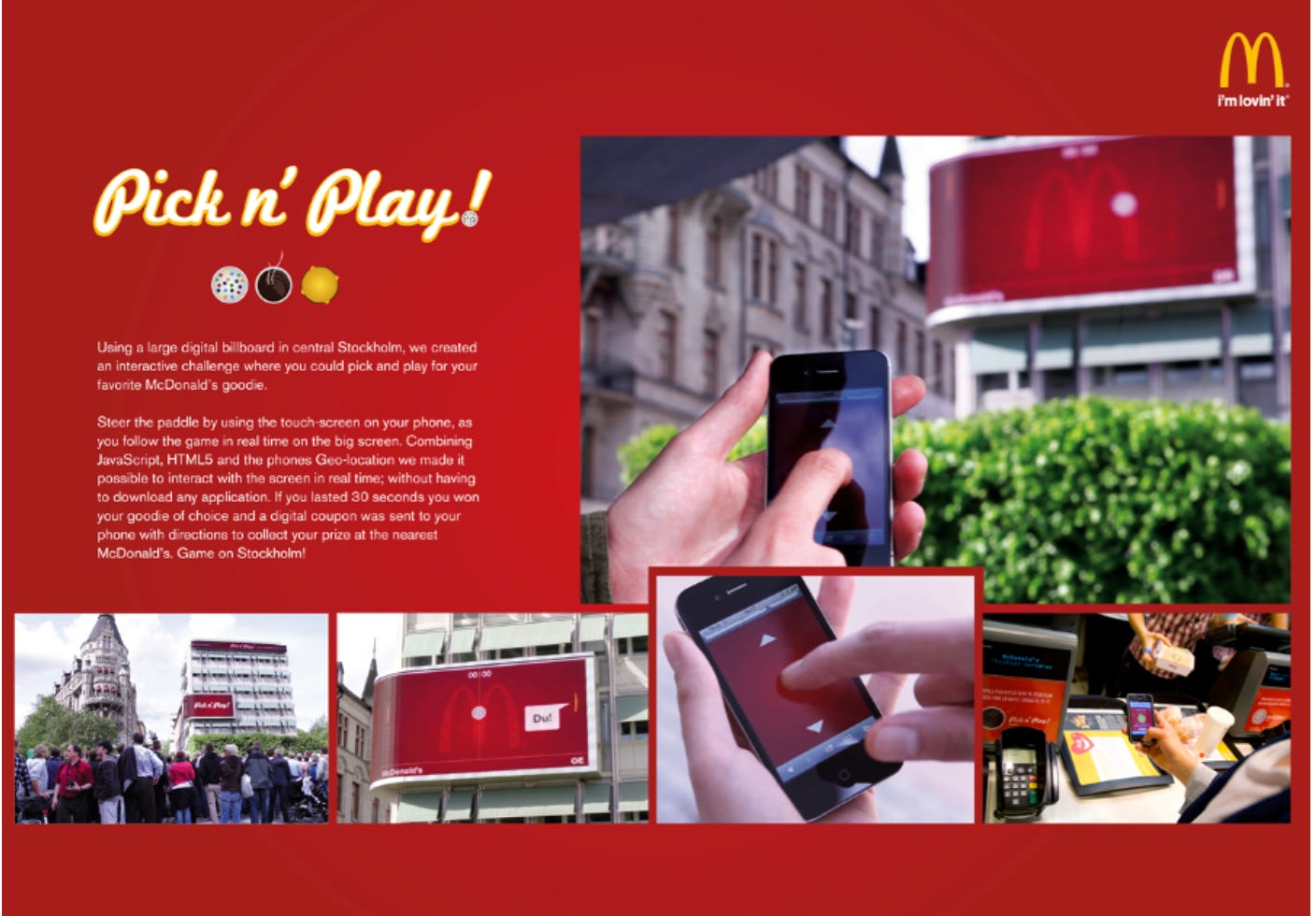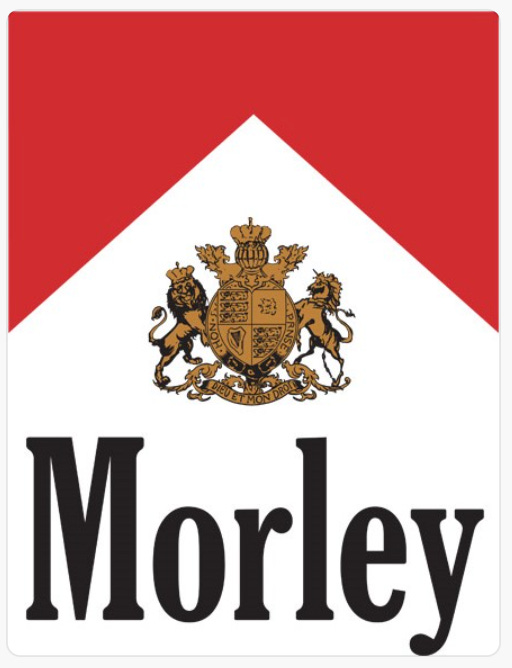May 2024
it's late I know but I've been on holiday and there wasn't wi-fi in the place so don't judge me
Hello all – I do believe this will hit your inboxes in June but, rest assured, it was completed in May so technically I have hit my own self imposed deadline that no one else would or should care about.
And with that out of the way, how are you? I have just come back from holiday in Wales which was lovely and I am now hankering for bara brith (look it up).
With the holiday snatching a week away, I’m afraid it is going to be a somewhat of a curtailed written performance from me - but I did want to send some links your way nonetheless, and some other stuff has been buzzing in my brain.
The thing that has got me thinking this month is this article by the ever wonderful Freddie De Boer around over optimisation. In it he talks about the over use of data and how that is actually making things less exciting, fair and interesting – with regards to many things including dating, getting a restaurant booking and sport:
“I don’t doubt that it really has been to the advantage of MLB teams to abandon the stolen base, despite the fact that the stolen base is the single coolest play in the sport, one which (unlike strikeouts or home runs) creates genuine uncertainty. I also don’t doubt that a 30% three-point shooter is often going to do more good for his team by jacking threes than by working for higher-percentage but less-valuable twos. I don’t disagree with the strategy as strategy. I dislike the outcomes that arise from teams all pursuing the same data-driven strategy when that strategy detracts from subjective enjoyment of the game.”
I found myself agreeing with the main premise, and how it interacts with our general world of advertising and employer branding; we want the data to tell us what to do and predict the most likely outcome. But in that we cater for the most likely scenario – with the expectation that human behaviour is uniform and ultimately predictable based on previous information. And subsequently we look to past successes to predict future successes. The trouble being that behaviour isn’t uniform. And as with De Boer’s point, if you optimise for the best possible outcome all the time, you may end up seeming staid and predictable too. Which brought to mind a point that Rory Sutherland often makes about bees and introducing randomness in order to stand out AND be successful.
I urge you to watch the clip but essentially what he is saying is that some of the bees have to fly off in a completely different direction so they can increase the chances of stumbling on some hitherto unknown bank of sweet sweet nectar and guarantee the survival of the hive. I won’t labour the point but you see what he’s getting at when it comes to advertising right?
It got me thinking anyway – one, how this is exactly how creative people tend to think and then more so in how to begin to sell in an idea that no-one has done before so has no previous bellweather of success. One to ponder.
And so to links
Employer brand stuff
I quite like the idea of this. Lego are building climate policies into their performance structure.
David Van Dijcke, Florian Gunsilius, and Austin Wright showing how return-to-office (RTO) mandates at several tech companies resulted in the disproportionate departure of senior employees.
Van Dijcke posits that more-senior workers had a greater preference for remote working and attractive job options at rival companies with less strict in-office working policies.I just explain things taking longer as “the other stuff that goes with the work” but this from Dave Stewart, has got colour coded bits and just does a better job of making it more understandable.
LinkedIn now has games on the platform. When I learned this, I did wonder what the sweet hell was going on. This aims to explain it
Creative stuff
This month I’ve mostly been like an old geezer who, when you tell him about a new band will just say the old bands that they sound like.
It started off with the thing that I guess everyone's seen - the NY/Dublin portal
(and the flashing incidents).
I kind of remembered something about it and then looked back at when they did it in in Vilnius and Lublin and notice that there don’t seem to be any flashing incidents reported there.
It actually made me think about this though. It’s a very old campaign by SNCF that I probably tried to rip off for a campaign back in the day. (BTW, I’m sure they weren’t the only or the first to do it either but this is the one I could easily google).
Similarly, this Coke digital billboard game came into my feed.
And cos I am old tings, it triggered my memory of this from Mcdonald’s from 2011.
Just so we know, I’m not trying to denigrate this work. But I do think it’s worth showing that good ideas can exist in more than one way and we can often learn from and be inspired by the past. So maybe we should look there more often.
I love the idea of the fictional brand for a fictional world.
And this was a nice piece for Walls from LOLA MullenLowe – using ice cream ad boards as solar panels to keep the ice creams cool. More stuff like this please.
Other stuff
Interesting piece and accompanying podcast around the soft power of culture and how governments have, in the past, tried to shape it for their own ends…did you know there was an alternative ending to the 1984 movie that the American government wanted to put out?
A take on commercialism from a clothes blogger which is probably good to read with this on the pitfalls of self promotion and turning yourself into a “brand”
The new status symbols of the office here
And that’s about it for me. Enjoy your June – I shall return!
Will

